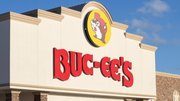Article
Grocery theatricals put under the spotlight
Some in-store bakeries are used "merely to warm up bread made in industrial units hundreds of miles away."

August 26, 2010
What follows is an excerpt from one of RetailWire's recent online discussions featuring commentary from its "BrainTrust" panel of retail industry experts.
Stop and smell the coffee, roast chicken and freshly baked bread. Breathe deeply, relax, submit to temptation then walk around the aisles filling your shopping cart with wonderful food for yourself, family and friends. That's the theory. Enticing smells will increase spend and build loyalty. What you see, however, isn't always what it appears to be.
As The Independent newspaper in London reports, not all those warm loaves of bread lining the shelves are freshly baked from scratch. Some in-store bakeries are used "merely to warm up bread made in industrial units hundreds of miles away."
The Advertising Standards Authority (ASA) recently ruled against Tesco ads, for example, for "implying that its bread was baked from scratch, when most of its stores had done little more than pop near-finished loaves into the oven." While coffee beans can be seen whole and then ground, especially when customers do the work themselves, there is no guarantee that bread hasn't been prepared elsewhere and then finished off for show purposes.
Other accusations have been made by food and farming pressure group Sustain against stores whose meat and fish counters are allegedly "a way for supermarkets to demonstrate their stores offer all the benefits of a traditional high street under one roof."
The newspaper then explains why critics believe they don't always "match the high standards of specialist independent traders." Some supermarket fish counters sell "thawed frozen food that may have been caught 10 days previously, rather than bought that morning at the docks." Meat may be imported and butchered off-site. Fresh produce often goes to central distribution units before it reaches branches.
Food writer and supermarket critic Joanna Blythman is quoted as describing in-store bakeries as "nothing but bogus retail theater." The article's point, and the ASA ruling, concern transparency. There is nothing to indicate any objection or ignorance on the part of consumers, simply a demand that there be little or no likelihood of people being misled. Nor is there any indication that this is actually the case. Consumers may be perfectly aware of what they are seeing and buying. And they may or may not be unhappy about it.

RetailWire BrainTrust comments:
When I discovered Walt Disney had pumped fresh smells from the Main Street stores to lure customers I thought it was brilliant. Still do.
Smell is a visceral attachment and a very acceptable way of tapping emotion which is why we buy in the first place. Seems like newspapers are reaching for moral outrage where none exists. - Bob Phibbs, President/CEO, The Retail Doctor & Associates
I think the transparency aspect of the articles, vs. focusing in on retail theater specifically, are not really connected. As someone who maintained that Montgomery Wards was in part undone by the fact that it's really disconcerting to shop for women's apparel when it smells like tires, I can't argue the point that smell is an important part of the retail experience.
But I also can't argue that we seem to be on the cusp of our century's Upton Sinclair/The Jungle moment in terms of understanding where our food is really coming from and how not paying attention to that is having an impact on our bodies. - Nikki Baird, Managing Partner, Retail Systems Research
Most supermarket visits are too sterile, prompting a boredom and annoyance response from many consumers. We have five senses for a reason and the olfactory dimension is an important one. Walk through a farmers' market and smell the fresh fruit and vegetables or the pies emerging from the oven. How can one not buy? How about Pike's Market in Seattle with its multitudes of aromas not to mention the visual theater or the Reading Terminal Market in Philadelphia?
We are selling food, not hardware or household goods. The variety of bouquets is an opportunity to enhance the shopping experience and increase the basket size. Let the drugstores be sterile, not the food retailers. - Richard George, Professor of Food Marketing, Saint Joseph's University
This reminds me of the Masters Tournament a few years back. CBS got in trouble for overlaying bird sounds in the TV feed. They got nailed because a bird lover noticed a particular birdsong was from a bird that wasn't from that area. Classic! - Derek Rodner, VP, Marketing, Agilence, Inc.
Just yesterday, a UK client was chatting with me about how the UK market is much more open to retail theater and I shared my belief that the US market is theatrically challenged. The model here still hinges on ensuring that the senses are not negatively drawn vs. leveraging the positive possibilities. Cutting clutter, clearing aisles, turning down the volume, extracting that tire smell (how did Sam's accomplish that, anyway?), etc. I'll take a good old-fashioned bread fake any day. - Carol Spieckerman, President, newmarketbuilders
Ah, I can't get the thought of fresh waffle cone smell at Ben and Jerry's out of my mind. They pump it out the front of the store and it's brilliant. I also remember touring SuperQuinn grocery stores in Ireland, smelling the freshly baked bread as you walk in. In both cases, it's a bit of theater, but the theater accurately reflects the concept.
Ultimately here, the proof is in the product. The waffle cones at B&J actually do taste good. If the reality doesn't live up to the theater, the consumer will resent it and the store will pay the price. - Jonathan Marek, Senior Vice President, APT
(Photo by Paul Swansen.)
| What do you think? Continue the conversation in the comments below. |
 ChatGPT
ChatGPT Grok
Grok Perplexity
Perplexity Claude
Claude




